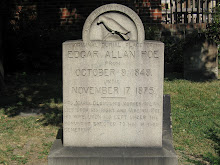Which comes first—the characters or the plot? In 1933 the novelist Edith Wharton explained that sometimes it was a character and other times a situation that suggested to her the idea for a story.
When I first began to talk with novelists about the art of fiction I was amazed at the frequently repeated phrase, "I've been hunting about for months for a good subject." Hunting about for a subject! Good heavens! … The truth is that I have never attached much importance to subject, partly because every incident, every situation, about me is perpetually presenting itself to me in the light of story-telling material, and partly from the conviction that the possibilities of a given subject are—whatever a given imagination can make of them …
In the birth of fiction, it is sometimes the situation, the "case," which first presents itself to the mind, and sometimes the characters who first appear, asking to be fitted into a situation. I have often speculated on the conditions likely to give the priority to one or the other, but I doubt if fiction can be usefully divided into novels of situation and of character, since a novel, if worth anything at all, is always both at once, in inextricable combination. I can only say that in my own case a situation sometimes occurs to me first, and in others a single figure suddenly walks into my mind. If the situation takes the lead, I leave it lying about, as it were, in a quiet place, and just wait till the characters creep stealthily up and wriggle themselves into it. All I seem to have done is to say, at the outset: "This thing happened—but to whom?" Then I wait, holding my breath, and one by one they appear and take possession of the case. When it befalls in the other way, I may be strolling about casually in my mind, and suddenly a character will start up before me, coming seemingly from nowhere; and again, but more breathlessly, I watch; and presently the character draws nearer, and seems to become aware of me, and to feel the shy but desperate need to unfold his or her tale. I cannot say in which way my subject will probably present itself—though perhaps in short stories the situation, in novels one of the characters, is most likely to appear first.
"Confessions of a Novelist," by Edith Wharton, April 1933
http://www.theatlantic.com/magazine/archive/2005/08/edith-wharton-on-characters/304119/
Friday, April 4, 2014
Subscribe to:
Post Comments (Atom)


No comments:
Post a Comment